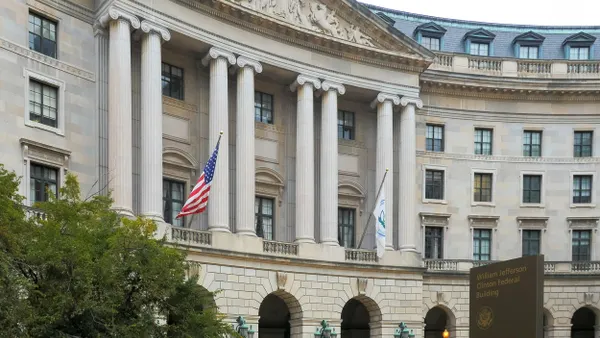Dive Brief:
- According to a new study funded by the American Chemistry Council's (ACC) Plastics Division, an estimated 60% of U.S. residents have access to recycling programs for multiple types of plastic.
- HDPE bottles, such as milk jugs, were the most commonly recyclable material at 92%. Bottles made from polyvinyl chloride followed at approximately 80% and bottle caps came in at 76%. Recycling for plastic tubs and buckets was listed at 70%.
- The research was conducted by Resource Recycling Systems and Moore Recycling Associates Inc. across 2,000 communities. Funding stakeholders were convened by the Sustainable Packaging Coalition.
Dive Insight:
This report comes shortly after another ACC-funded study done by Trucost which found the environmental costs of plastics to be less than other materials. According to ACC, this latest report's findings are important because the Federal Trade Commission requires that for an item to be marketed as "recyclable" at least 60% of consumers need access to recycling programs that accept it.
"These latest numbers show that more Americans are able to recycle more plastics than ever before," said Steve Russell, vice president of plastics for ACC, in Recycling Today. "Plastics makers, brand owners, retailers and recyclers are continuing to work together to increase the types of plastics collected for recycling and to strengthen consumers’ awareness of these opportunities."
Another recent study, conducted by the same researchers, looked at recycling for beverage containers and found that residents have access to programs for a wide range of materials. However access is, of course, only one part of the equation. Participation is a key challenge that has eluded many municipalities. This has inspired a number of programs in the hopes that residents can not only buy recyclable materials, but also do the right thing once they're done with them.











